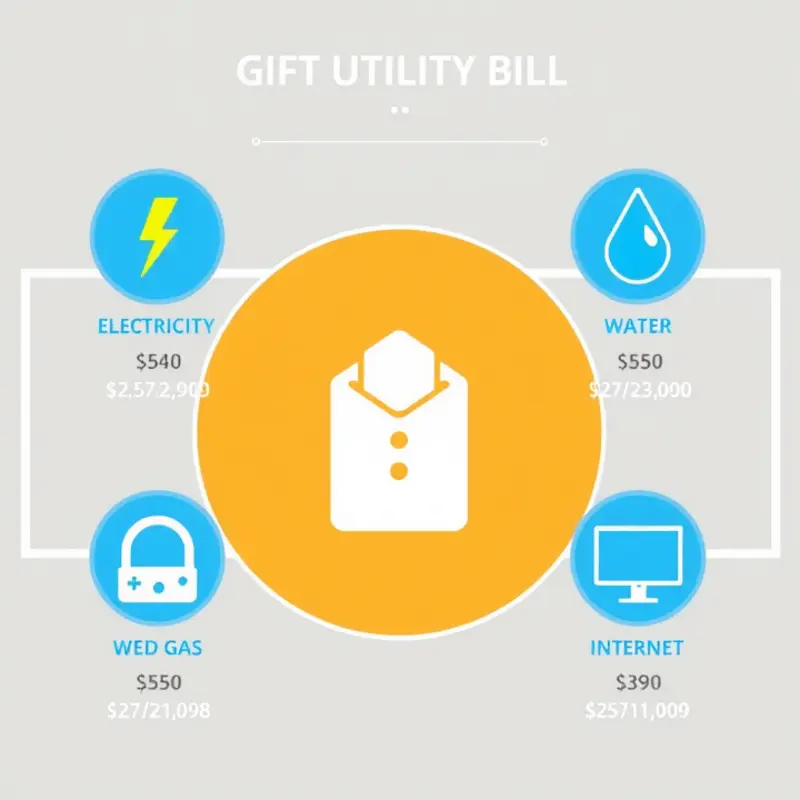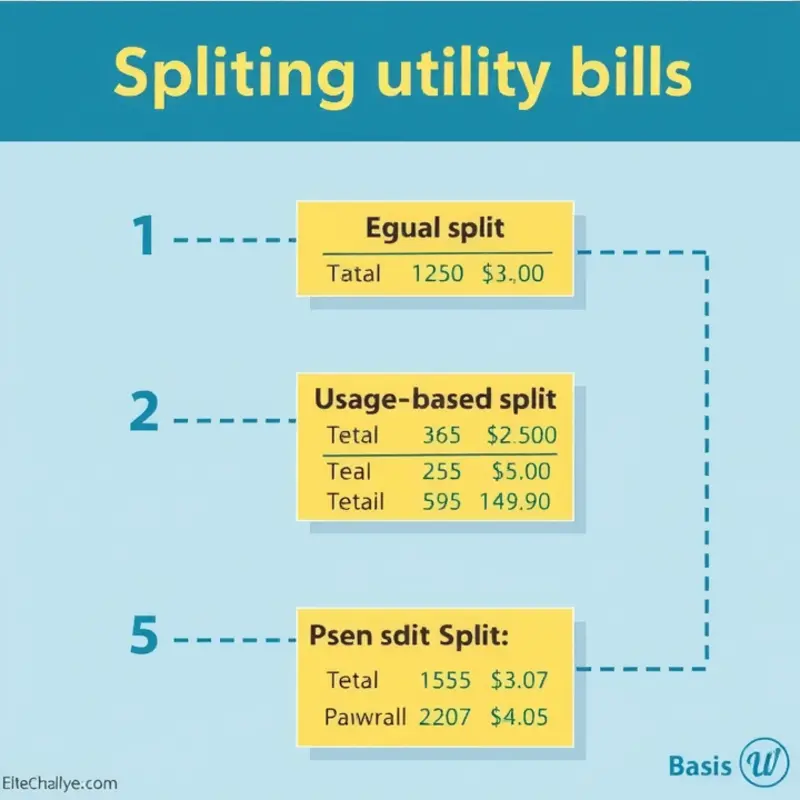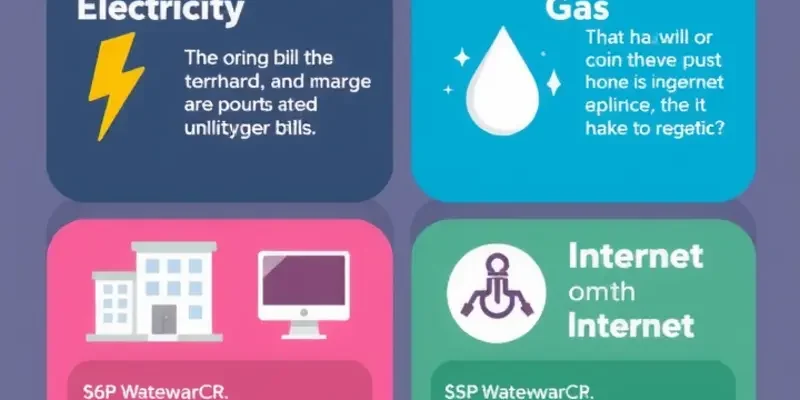Understanding utility bill splits can be a source of confusion for young professionals, first-time renters, students, couples, and families. As costs of living increase, knowing how to effectively share utility expenses is crucial. From understanding what utilities to expect to figuring out fair divisions, having a solid grasp on these concepts can help foster harmony among roommates and ensure financial clarity. This guide breaks down key elements of utility bills, including how to accurately split costs, what to include in those splits, and tips for negotiating terms with your landlord. Equipped with this knowledge, you’ll be able to navigate the often murky waters of shared living expenses and create a budget that works for everyone involved. So let’s delve into how to take control of your utilities and share them wisely.
Understanding Your Utility Bills

Utility bills are an inevitable part of renting, and understanding their intricacies is crucial. Let’s explore common utilities: electricity, water, gas, internet, and garbage collection. Recognizing how each functions, factors affecting costs, and estimation strategies will aid in transparent communication and fair cost-sharing.
Electricity powers your lights, appliances, and many daily essentials. Costs can fluctuate based on usage, time of day, and local rates. To estimate your share, review the monthly kilowatt hours used and note peak rates. Energy-efficient appliances and mindful usage can lower these bills. It’s helpful to discuss habits, like lowering heating or cooling when nobody’s home, to manage consumption.
Water usage billing bases its cost on consumption, often measured in gallons or cubic meters. Regular activities such as showering, cooking, and washing contribute to this bill. Leaks can exponentially raise costs, so investigate if your bill spikes unexpectedly. Estimating involves analyzing past usage patterns and recognizing seasonal variations, like increased summer usage.
Gas is less common in apartments but crucial for heating and cooking purposes where applicable. Charges depend on volume used and market prices, often increasing in colder seasons. Implementing habits such as reducing heating in unused rooms can impact this bill. You should be aware of your property’s rate structure, whether tiered or flat.
Internet services represent a different category, often fixed monthly unless data caps are exceeded. Unlike other utilities, internet costs are more predictable. Providers offer various speeds and data options, which can add complexity. Split internet based on room usage patterns or opt for a higher speed to accommodate multiple users.
Garbage collection varies by region, with some areas including it in municipal taxes while others charge separately. The fee may reflect frequency of pick-up and bin size. To reduce costs, think about recycling programs that some communities offer. Knowing your area’s system can help divide these costs equitably.
Factors influencing utility costs go beyond personal usage. Regulatory policies, location, and seasonality all come into play. An apartment-friendly strategy is essential for managing these costs effectively. For instance, check out these tips on resolving rental billing errors, which could come in handy.
Clear communication with housemates about usage habits and bill splitting strategies ensures everyone pays their fair share without conflict. Use historical data to predict future costs or set usage guidelines based on utilities like electricity and water. This proactive approach integrates practical habits into shared living situations, conducing a harmonious cohabitation environment as you navigate shared expenses together.
Fairly Splitting Utility Costs

Finding an equitable way to split utility bills among renters can prevent tension and promote harmony in a shared living space. Various methods exist like equal splits and usage-based splits, each offering its own benefits. Let’s explore how to determine which system works best and how to execute it.
Equal splitting might be the simplest solution. Everyone divides the total bill by the number of residents, leading to predictable monthly expenses. It’s straightforward and reduces the need for tracking individual consumption. This method works best in situations where everyone uses utilities similarly. However, if one person spends significantly more time at home, it might not seem fair to them.
Usage-based splitting is more complex but can feel more equitable when consumption varies widely. You can track electric usage via smart meters or apps that offer individual usage reports. For water and gas, however, tracking might require manual effort like estimating shower duration or cooking times. Though effort-intensive, this method aligns costs closely with personal consumption, reducing resentment over paying for someone else’s habits.
Implementing a practical schedule can also simplify the bill-paying process. Whether you try monthly rotations or assign permanent roles, clear communication is essential. Decide whether everyone should pay their share directly to the utility company or if one person will handle all payments, collecting shares from housemates. A shared calendar can ensure everyone knows when payments are due, reducing late fees and confusion.
Transparency in utility payments is crucial. Organize a regular check-in at the start of each billing cycle. Share the bill receipt and any consumption data with everyone via email or a shared cloud service. This practice fosters trust, as all roomates can verify the amount being charged and ensure the splitting method is being fairly applied.
Utilizing digital tools and apps can greatly assist in tracking and managing utility payments. Look for tools that offer bill-splitting features, reminders, and even payment scheduling. Some apps synchronize with bank accounts and send notifications about upcoming bills, making life easier for payers.
If you’re interested in diving deeper into how effective organization can streamline your home life, explore this guide on apartment organization using baskets. Keeping your utility documents organized is as essential as paying them on time.
Ultimately, the key to splitting utility costs fairly is open communication and using tools to keep everyone informed. Whether you opt for equal or usage-based splits, ensure that every housemate feels that their share is justified and transparent.
Final words
Grasping how to effectively split utility bills is essential for anyone living with others, whether as roommates, couples, or families. Clear communication and understanding of each utility can significantly mitigate misunderstandings over costs. By using fair splitting methods, not only will you ensure everyone feels valued, but you will also foster a more harmonious living situation. Keep track of finances proactively and utilize tools for better management, paving the way for a worry-free rental experience. Ultimately, understanding these elements empowers you as a tenant and helps you maintain control over your finances.









